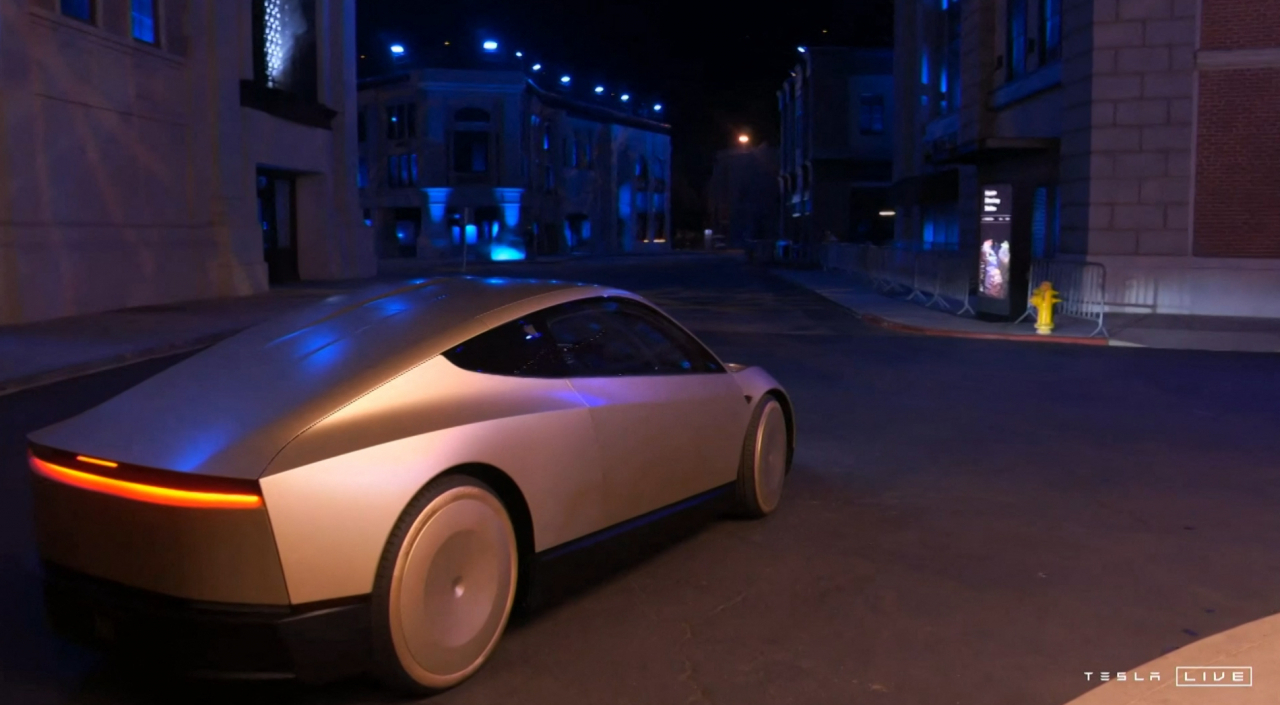 |
Captured image from a video released by Tesla on Thursday shows the automaker’s robotaxi during a launch event at the Warner Brothers studio lot in Los Angeles, US. (Reuters-Yonhap) |
South Korea should join the global movement to set safer international standards for autonomous driving systems, according to a report released by the state-run Korea Automotive Technology Institute on Monday.
Cho Min-wook, senior researcher and author of the report, stated that the International Organization for Standardization and the auto industry are looking to adopt a more comprehensive approach that encompasses safety and security for Level 3 and more advanced self-driving systems. ISO is a non-governmental organization that develops standards for products, services and systems to ensure their quality, safety and efficiency.
“For higher levels of autonomous driving systems to work, they should make more accurate and safe decisions regarding vehicle operations when encountering people and objects during various conditions including different road types, times of operation (day and night) and weather conditions,” Cho suggested.
The international consensus is that the current separate evaluations of autonomous driving components and functions are insufficient to fully assess normal, abnormal, and hazardous driving situations in Level 3 and more advanced self-driving systems and that this approach also limits the ability to ensure safety, Cho added.
Germany, the US and Japan, which are at the forefront of developing international standards, have already partnered with carmakers and organizations to implement more sophisticated strategies.
In particular, Germany is carrying out the PEGASUS and VVM projects with companies such as BMW, Audi, Volkswagen, Ford and Mercedes-Benz to develop a simulation-based test method to evaluate the safety of Level 3 and higher-level autonomous vehicles.
Noting that Korea’s self-driving vehicle test facilities are equipped for Level 2 cars, Cho said the domestic automotive industry needs to prepare for the life cycle assessments for more high-tech cars. This preparation includes simulations, digital twins of the proving ground and actual road conditions.
As there are technological and financial hurdles for auto parts manufacturers to set up cutting-edge test centers, Cho proposed they join hands with companies overseas.
“Global OEMs (Original Equipment Manufacturers), which take the lead in setting up new paradigms for international standards, are highly likely to demand (car parts makers) to submit the details on the development strategies and test results of the autonomous driving systems,” said Cho. “This could be a major challenge for Korean companies in making a foray into the global markets. So they should take proactive action before it’s too late.”





![[Herald Interview] How Gopizza got big in India](http://res.heraldm.com/phpwas/restmb_idxmake.php?idx=644&simg=/content/image/2024/11/20/20241120050057_0.jpg)

